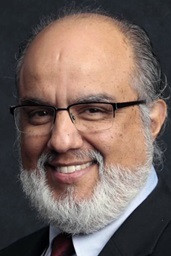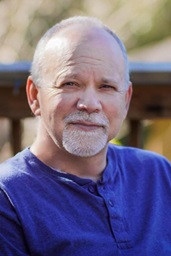On Feb. 26, 2012, Trayvon Martin, an unarmed 17-year-old, was shot and killed by a member of a neighborhood watch in Sanford, Fla. On July 13, 2013, the shooter, George Zimmerman, was found not guilty, in a verdict that has stirred debate and emotions across the U.S. Following the verdict, Florida Bishop Ken Carter wrote a UMNS commentary, which included:
One can set aside the verdict of the Trayvon Martin death, giving the jurors the benefit of the doubt, and still find the events in Sanford deeply disturbing.
One man is dead, another is free. The deceased was an unarmed young black man. The killer was armed and claimed self-defense, against the background of Florida’s “Stand Your Ground” law. The toxic brew of economic scarcity, racial profiling, escalating violence and community destabilization is at the heart of the experience.
My own commitments are these: to encourage those congregations in the Florida Conference that reflect the multicultural diversity of their communities; to question more publicly the “Stand Your Ground” laws of our state, and its incompatibility with our General Rule to “First, Do No Harm;” and to bear witness to the cross, which has broken down the dividing wall of hostility that is between us.
This is the peace of Christ, which the world can neither give nor take away. This is our birthright gift. The world is in need of it now.
Trayvon Martin and racial profiling
DES MOINES, Iowa (UMNS) — “African Americans in the United States are not of one mind on all things regarding politics, religion, or race,” notes Bishop Julius C. Trimble of the Iowa Area. “Many who read this article will note they are fully aware of their own stories; never defined by permanent despair, but unyielding hope. Hope in a God of justice and mercy; and a world we can make better.”
Read commentary
Trayvon Martin’s death a tragedy
CHICAGO (UMNS) – “Putting faith into action sometimes requires that we rally, vote, and stand for change in our systems,” writes Bishop Sally Dyck of the Chicago Area. “It means that we make our neighbor’s good our own whether it literally be a neighboring community or the actual neighbor next door.”
Read commentary
White privilege and Trayvon Martin
PITTSBURGH (UMNS) – Those of us who benefit from “white privilege” should be very careful to think before we speak any word of judgment and condemnation in this or any case involving potential racism, writes Bishop Thomas J. Bickerton of the Pittsburgh Area.
Read story and post a comment
Bishop: ‘Seize teachable moment’ after Zimmerman acquittal
LAKELAND, Fla. (UMNS) — Bishop Ken Carter of the Florida Annual (regional) Conference says after George Zimmerman’s acquittal in the death of Trayvon Martin that it’s time to return to Jesus’ core teachings about peace-making and reconciliation.
Read commentary
Finding peace and seeking answers in shooting case
NASHVILLE, Tenn. (UMNS) –– Many took to the streets to protest the not-guilty verdict in the trial of George Zimmerman, but many also went to their houses of worship to find peace and seek answers. Kathy Gilbert provides a look at what United Methodists are saying.
Read story and post a comment
Reactions to Trayvon Martin’s death in context
NASHVILLE, Tenn. (UMNS) — The Rev. Gilbert H. Caldwell writes, “before any people ignore the gravity of the response of black individuals like myself to the killing of Trayvon Martin and the trial of his killer, I suggest they turn in the United Methodist Hymnal to No. 519, ‘Lift Every Voice and Sing.’”
Read story and post a comment
Time to have the difficult conversations
MARION, Ind. (UMNS) — In light of the George Zimmerman trial, the Rev. Kwasi Kena offers tips on starting difficult conversations.
Read story and post a comment
Sound the Alarm: Bronx pastor responds to Zimmerman verdict
NEW YORK (UMNS) — “This is not the time for usual pastoral letters indicating support for the aggrieved while being careful not to offend the white majority,” writes the Rev. Doug Cunningham.
More reaction to Zimmerman acquittal
NASHVILLE, Tenn. (UMNS) — Bishop Gregory V. Palmer of the West Ohio Annual (regional) Conference finds a Gospel lesson and Bishop James Swanson of the Mississippi Conference gets personal in writing about the acquittal of George Zimmerman in the shooting death of Trayvon Martin.
Read Palmer commentary
Read Swanson commentary
Retired Bishop Linda Lee, interim top executive of the United Methodist Commission on Religion and Race, invokes the biblical story of Esther in another piece on this subject.
Read Lee commentary
The United Methodist Commission on Religion and Race also has released a statement that speaks out on the issues of violence and incarceration.
Read commission statement
Bishop’s Call to Prayer – Trayvon Martin
PASADENA, Calif. (UMNS) — Bishop Minerva G. Carcaño, president of the United Methodist Commission on Religion and Race, calls for prayer for both the Martin and Zimmerman families following the verdict of not guilty in the trial of George Zimmerman.
Read her full statement
“Not Guilty But Not Innocent”
INDIANAPOLIS (UMNS) — “It helps to remember that being found ‘not guilty’ is not the same thing as being found ‘innocent,'” writes Indiana Area Bishop Mike Coyner. He offers suggestions for how Christians should respond.
Read commentary
Read more
- We should all be terrified
- Martin case increases race concerns
- What Do I Tell My Son about Trayvon Martin, Revisited
You are invited to share your comments below and be part of the conversation.
Like what you're reading? Support the ministry of UM News! Your support ensures the latest denominational news, dynamic stories and informative articles will continue to connect our global community. Make a tax-deductible donation at ResourceUMC.org/GiveUMCom.



